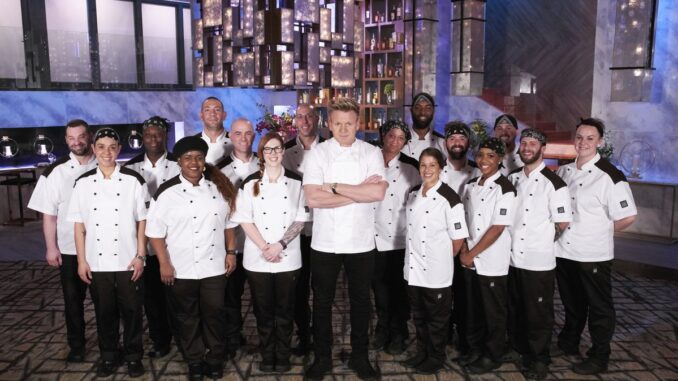
The sizzle of scallops, the clatter of pans, and the unmistakable roar of Gordon Ramsay’s voice cutting through the chaos—Hell’s Kitchen isn’t just a cooking competition; it’s a spectacle of passion, precision, and pressure. Since its debut in 2004, this high-octane reality show has not only entertained millions but also propelled Ramsay from a celebrated chef to a household name recognized across continents. Behind the flames and fury lies a story of how one TV format became the perfect stage for his larger-than-life persona and culinary mastery.
Before Hell’s Kitchen hit screens, Gordon Ramsay was already a force in the culinary world—a Michelin-starred chef with an uncompromising standard for excellence. Yet, it was the marriage of his intense personality with the reality TV format that created something unforgettable. The concept was simple but revolutionary: two teams of aspiring chefs battle it out in a working restaurant kitchen under Gordon’s watchful (and often intimidating) eye. Every dinner service was a test of skill, speed, and resilience, culminating in eliminations until one winner emerged to claim a coveted head chef position.
The decision to put real service pressure front and center was what set Hell’s Kitchen apart. Unlike sanitized cooking shows that filmed in quiet studios, this was raw, messy, and alive—a genuine glimpse into the unforgiving pace of professional kitchens.
Over the years, Hell’s Kitchen has produced countless memorable moments and contestants who became fan favorites. Some were lauded for their skill and leadership, others remembered for spectacular meltdowns or dramatic exits. The unpredictability of human behavior under intense stress was part of the magic—every episode felt like controlled chaos.
The challenges, too, became legendary: blind taste tests, tableside flambé service, and pressure-cooker dinner services where the smallest mistake could send an entire brigade into free fall. Watching Ramsay navigate these situations—sometimes with brutal honesty, other times with unexpected patience—gave audiences a thrill that kept them coming back season after season.

The impact of Hell’s Kitchen on Gordon Ramsay’s career cannot be overstated. While he was already known in the culinary elite, the show introduced him to mainstream audiences worldwide. His persona—equal parts uncompromising chef and no-nonsense mentor—proved magnetic. Soon, Ramsay became a fixture on multiple TV formats, from Kitchen Nightmares to MasterChef, expanding his brand beyond the kitchen to books, restaurants, and media ventures.
What’s remarkable is how Hell’s Kitchen managed to maintain relevance over nearly two decades. It adapted without losing its essence, balancing fresh challenges with the familiar structure fans loved. Hell’s Kitchen’s success sparked international adaptations in countries like the UK, Australia, and Canada. Each retained the core formula—high pressure, high drama—but added local flavor. Ramsay himself often appeared in these versions, further cementing his role as the face of culinary competition on television.
More than a show, Hell’s Kitchen became a cultural touchstone. Its memes, quotes, and scenes have permeated internet culture, inspiring everything from TikTok parodies to motivational compilations. The red and blue teams, the iconic jacket, the coveted “black jacket” stage—these are now part of cooking show mythology.
Why has Hell’s Kitchen endured when so many other reality formats have faded? Part of the answer lies in its authenticity. Despite the editing and drama, the kitchen stakes are real. Food must be served to paying diners, reputations are on the line, and contestants are fighting for career-changing opportunities. For viewers, the tension feels genuine, and Ramsay’s reactions—whether explosive or encouraging—ring true. The other part is Ramsay himself. Love him or loathe him, his passion is undeniable, and that passion is contagious. He embodies the idea that excellence demands sacrifice, and watching him enforce that standard is both thrilling and inspiring.
